Peugeot 5008 vs SEAT Leon - Differences and prices compared
Compare performance (325 HP vs 272 HP), boot space and price (37600 £ vs 24500 £ ) at a glance. Find out which car is the better choice for you – Peugeot 5008 or SEAT Leon?
Costs and Efficiency:
Price and efficiency are often the first things buyers look at. Here it becomes clear which model has the long-term edge – whether at the pump, the plug, or in purchase price.
SEAT Leon has a clearly advantage in terms of price – it starts at 24500 £ , while the Peugeot 5008 costs 37600 £ . That’s a price difference of around 13140 £.
Fuel consumption also shows a difference: SEAT Leon manages with 1.20 L and is therefore significantly more efficient than the Peugeot 5008 with 2.70 L. The difference is about 1.50 L per 100 km.
As for electric range, the Peugeot 5008 performs clearly better – achieving up to 669 km, about 536 km more than the SEAT Leon.
Engine and Performance:
Power, torque and acceleration say a lot about how a car feels on the road. This is where you see which model delivers more driving dynamics.
When it comes to engine power, the Peugeot 5008 has a somewhat edge – offering 325 HP compared to 272 HP. That’s roughly 53 HP more horsepower.
In acceleration from 0 to 100 km/h, the Peugeot 5008 is a bit quicker – completing the sprint in 6.50 s, while the SEAT Leon takes 7.70 s. That’s about 1.20 s faster.
There’s no difference in top speed – both reach 220 km/h.
There’s also a difference in torque: Peugeot 5008 pulls evident stronger with 511 Nm compared to 360 Nm. That’s about 151 Nm difference.
Space and Everyday Use:
Cabin size, boot volume and payload all play a role in everyday practicality. Here, comfort and flexibility make the difference.
Seats: Peugeot 5008 offers evident more seating capacity – 7 vs 5.
In curb weight, SEAT Leon is evident lighter – 1344 kg compared to 1700 kg. The difference is around 356 kg.
In terms of boot space, the SEAT Leon offers minimal more room – 380 L compared to 348 L. That’s a difference of about 32 L.
In maximum load capacity, the Peugeot 5008 performs clearly better – up to 2232 L, which is about 931 L more than the SEAT Leon.
When it comes to payload, Peugeot 5008 somewhat takes the win – 640 kg compared to 521 kg. That’s a difference of about 119 kg.
Who comes out on top?
Overall, the Peugeot 5008 shows itself to be wins the duel decisively and secures the title of DriveDuel Champion.
It convinces with the more balanced overall package and proves to be the more versatile choice for everyday use.
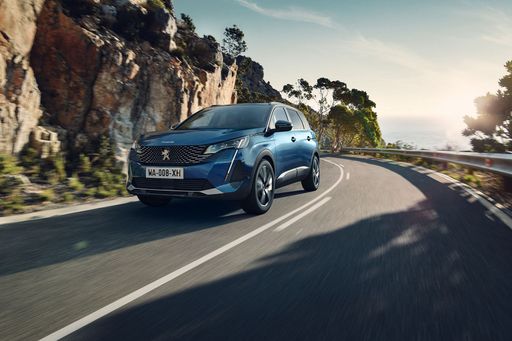
Peugeot 5008
Costs and Consumption
View detailed analysis
Engine and Performance
View detailed analysis
Dimensions and Body
View detailed analysis
Peugeot 5008
The Peugeot 5008 blends Peugeot's sharp design with the space and versatility families actually need, wrapping clever packaging and a premium-feeling cabin in a crisp, SUV-like silhouette. It drives with more poise than you'd expect from a people carrier, serves up practical touches and flexible seating for everyday chaos, and still looks good when parked outside the school gates.
details

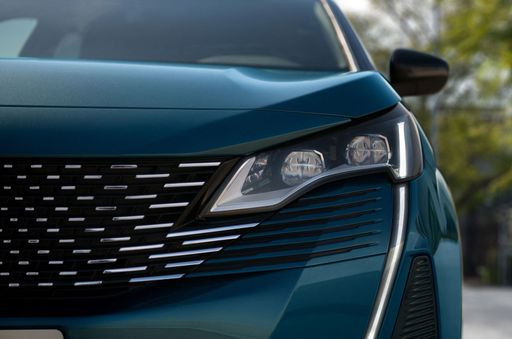

SEAT Leon
SEAT Leon pairs sharp, modern styling with a cabin that's sensible and slightly sporty, making it an appealing choice for buyers who want flair without fuss. It drives with eager composure and offers a neat balance of comfort and agility, so you get everyday usability with a wink of fun.
details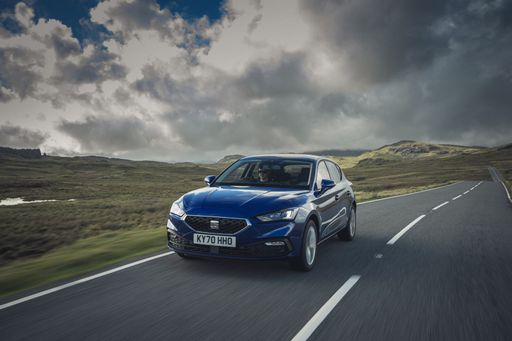
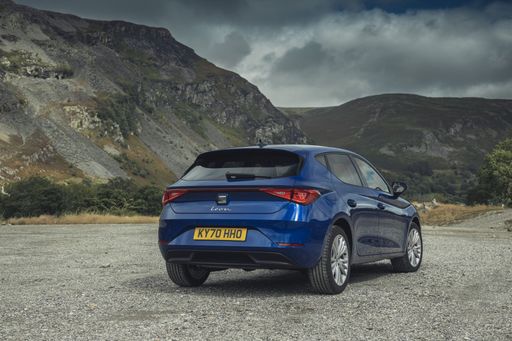
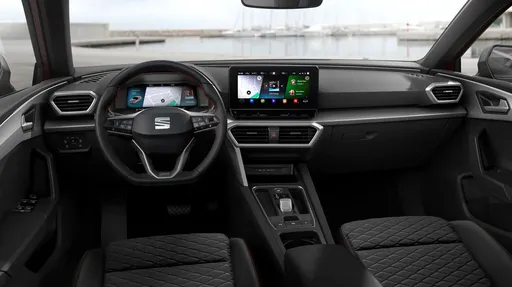
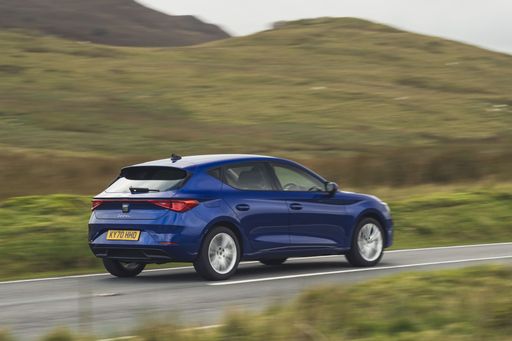
Costs and Consumption |
|
|---|---|
|
Price
37600 - 54200 £
|
Price
24500 - 36400 £
|
|
Consumption L/100km
2.7 - 5.6 L
|
Consumption L/100km
1.2 - 5.5 L
|
|
Consumption kWh/100km
17.8 - 18.6 kWh
|
Consumption kWh/100km
-
|
|
Electric Range
78 - 669 km
|
Electric Range
133 km
|
|
Battery Capacity
0.4 - 96.9 kWh
|
Battery Capacity
19.70 kWh
|
|
co2
0 - 127 g/km
|
co2
27 - 126 g/km
|
|
Fuel tank capacity
55 L
|
Fuel tank capacity
40 - 45 L
|
Dimensions and Body |
|
|---|---|
|
Body Type
SUV
|
Body Type
Hatchback
|
|
Seats
7
|
Seats
5
|
|
Doors
5
|
Doors
5
|
|
Curb weight
1700 - 2344 kg
|
Curb weight
1344 - 1657 kg
|
|
Trunk capacity
294 - 348 L
|
Trunk capacity
270 - 380 L
|
|
Length
4791 mm
|
Length
4368 mm
|
|
Width
1895 mm
|
Width
1799 mm
|
|
Height
1694 mm
|
Height
1442 - 1460 mm
|
|
Max trunk capacity
2178 - 2232 L
|
Max trunk capacity
1187 - 1301 L
|
|
Payload
596 - 640 kg
|
Payload
473 - 521 kg
|
Engine and Performance |
|
|---|---|
|
Engine Type
Electric, Petrol MHEV, Plugin Hybrid
|
Engine Type
Petrol, Petrol MHEV, Diesel, Plugin Hybrid
|
|
Transmission
Automatic
|
Transmission
Manuel, Automatic
|
|
Transmission Detail
Reduction Gearbox, Dual-Clutch Automatic
|
Transmission Detail
Manual Gearbox, Dual-Clutch Automatic
|
|
Drive Type
Front-Wheel Drive, All-Wheel Drive
|
Drive Type
Front-Wheel Drive
|
|
Power HP
145 - 325 HP
|
Power HP
116 - 272 HP
|
|
Acceleration 0-100km/h
6.5 - 10.2 s
|
Acceleration 0-100km/h
7.7 - 10.5 s
|
|
Max Speed
170 - 220 km/h
|
Max Speed
197 - 220 km/h
|
|
Torque
230 - 511 Nm
|
Torque
220 - 360 Nm
|
|
Number of Cylinders
3 - 4
|
Number of Cylinders
4
|
|
Power kW
107 - 239 kW
|
Power kW
85 - 200 kW
|
|
Engine capacity
1199 - 1598 cm3
|
Engine capacity
1498 - 1968 cm3
|
General |
|
|---|---|
|
Model Year
2024 - 2025
|
Model Year
2024 - 2025
|
|
CO2 Efficiency Class
A, D, B
|
CO2 Efficiency Class
D, B
|
|
Brand
Peugeot
|
Brand
SEAT
|
Is the Peugeot 5008 offered with different drivetrains?
Available configurations include Front-Wheel Drive or All-Wheel Drive.




